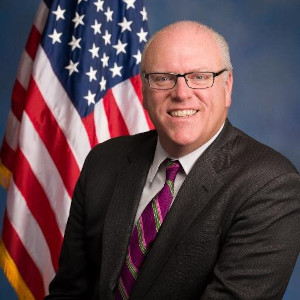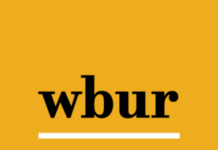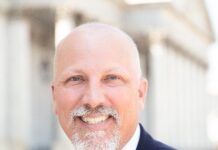
(By Ed Ryan) The musicFIRST Coalition and the Future of Music Coalition are calling out the National Association of Broadcasters. The two organizations say the NAB is making hypocritical arguments to federal regulators and lawmakers.
The two organizations are planning to file a reply comment to the FCC on Friday in response to the NAB’s push to raise ownership caps. musicFIRST Chairman Joe Crowley said, “The NAB’s hypocrisy truly knows no bounds. They ask the FCC and Congress to change the rules to make sure broadcasters are compensated when others make money off their content, but they won’t extend the same fairness to the artists whose music they exploit to line their pockets. They want one set of facts for themselves and a different one for everyone else — and we’re not going to let that stand.”
Yes, the NAB has been pushing for the FCC to loosen ownership caps. However, the main reason they are requesting the change is so stations can better compete with digital giants Facebook, Google, YouTube, and other unregulated tech companies who are competing for the local advertising dollar. Broadcasters have not asked for the change to “make sure they are compensated.” Not all broadcasters are in agreement that the caps should be lifted, and it’s not really clear how owning 10 or 12 stations in a market, rather than 6 or 8, would put radio on a level playing field with the big tech companies.
musicFIRST has been going after radio to pay artists to air their music for years. Since former Congressman Joe Crowley became Chairman of musicFIRST the organization has come after radio even harder. Crowley is hoping Congress passes what is called the American Music Fairness Act, which currently has 13 co-sponsors in the House of Representatives. The NAB’s Local Radio Freedom Act has support from over 200 members of Congress, but it’s only a non-binding resolution. Time will tell if Crowley and his former colleagues in Congress can put together a larger coalition than the NAB.
Crowley and musicFIRST have really been targeting the bigger groups, going after iHeartMedia, Audacy, Cumulus, Beasley, and a few others. They are offering smaller groups and stations a blanket fee, perhaps to drive a wedge between radio’s bigger companies and the mon-and-pop owners. There has not been an official formula put on the table by musicFIRST as to how the fee structure might work. It’s been mostly lobbying in Washington, with both sides trying to convince as many lawmakers as possible to take their side.
A musicFIRST press release states that when broadcasters ask the FCC to relax the broadcast radio ownership rules, they claim lost audience share revenue due to changing consumer behavior. The organization says broadcasters can’t claim to be hemorrhaging listeners (due to changing consumer behavior) and standing up for fair compensation for content creators when it suits them, only to turn around and tell artists that they don’t deserve the same fair compensation for their own content because broadcasters are providing them so much “promotional value” by exposing their music to a (by their own admission) rapidly shrinking pool of listeners. “It’s hypocrisy, plain and simple — and the FCC should not let it stand.”
In the musicFIRST press release, Crowley went on to say, “As the FCC conducts their quadrennial review, it should take note that the NAB’s arguments in support of relaxing the broadcast radio ownership rules and passing the Journalism Competition and Preservation Act on the one hand, and its arguments against the American Music Fairness Act on the other, cannot simultaneously be true. Just like you’re not allowed to maintain contradictory positions before the courts, the FCC should not allow the NAB to maintain contradictory positions before federal policymakers — especially when one set of those positions is being used to support policy changes that will negatively impact media competition, in direct opposition to the public interest.”
An NAB Spokesperson told Radio Ink last night, “It is beyond ironic that musicFIRST continues to focus on the handful of radio stations that are owned by big companies when 87% are not. Meanwhile, there are only three major music groups, two of which are foreign-owned, and their earnings are skyrocketing as they claim to need Congress’s help in taking money from local radio stations — stations that have been particularly hard hit by the pandemic and continue to provide billions of dollars in free promotion to performing artists each year. In fact, a recent article suggests these music companies are turning over $2.5 million every hour.”
What radio stations have on their side, in addition to their position of strong promotional value for the artists, is the local radio station microphone. At some stage of the game politicians will run for re-election. They know they need the power of that “free” local radio station interview to reach their voters. They are not going to run back to their districts and find a Spotify studio, or local Pandora station, to get their message out.
On the other side, musicFIRST has been putting artists in front of the microphones at press conferences. While Dionne Warwick is a very recognizable name, there haven’t been any current chart-topping artists that are clamoring for radio to pay them “or else.” Artists appear to be taking a wait-and-see approach, which really isn’t doing radio any favors. While we’ve run stories about artists thanking radio for playing their music, or always remembering where they were the first time they heard their song on the radio, they certainly are not taking a public stand and getting behind the industry that helps make them stars.






No offense to any songwriters, artists, producers or record companies but you’re still trying to bite the hand that feeds you. I’m sure The Beatles were helped by broadcast radio, as is The Weeknd, Olivia Rodrigo and Dua Lipa in 2021. Radio’s revenue stream has been negatively affected by increased competition and yet it still seems to be the place to hear the biggest artists of the day which sells music and increases their exposure. Should broadcasters pay more? Should musicians pay to have their material broadcast? Who can possibly win in this fight ?
“Should musicians pay to have their material broadcast?”
Federal law prohibits that from happening. The US is the only country that has payola laws.
And the law ONLY applies to broadcasters. Payola is not illegal for digital satellite and streaming.
An act of desperation. The FCC has no role here. The NAB offered them a voluntary payment over ten years ago, and they turned it down. So that’s not what they want. They want Congress to pass a new royalty act. So this is a sham and a shell game.
Meanwhile, they say they offer smaller stations a small fee, while at the same time attacking a small station in Wyoming for not completing the mountains of paperwork required. Sure, small stations just have to pay $100 a month, but the have to submit reams of paperwork listing obscure details about the songs. They don’t give the full picture.
Welp, they ain’t exactly wrong…
Does anyone other that “Radio” actually buy into the industry’s tired old (and specious) arguments anymore?
We are, essentially, in the content delivery business, and are making the argument that we are precious little cupcakes who shouldn’t have to pay for the content from which we profit.
Apply this logic to literally any other business scenario & you’ll quickly see why *nobody* other than radio insiders find it compelling.
To be clear: Radio pays everyone they’re required to pay. Radio stations and radio companies are following the law. What this group wants is a new law and a new royalty that would go above and beyond what radio is already paying for the exact same music. Complaining to the FCC is not the way to get a new law passed.
While only indirectly related to this article, local radio DOES NOT need the ability to own tons of stations in order to compete. It needs relevance and localism. Sure, Spotify, et al will have an effect no matter what but local radio is for serving a community or region whereas Spotify is there to serve the world. If all you want is music and national sports and news, then the worldwide services will serve you well but if what you want is LOCAL events and personalities then you want LOCAL radio. It is frankly lazy and pointless to have a bunch of terrestrial radio stations broadcasting national personalities (if even that is even bothered with) and music lists prepared by national programmers. It isn’t cheap to do things right but you must make an investment to yield a return. If all you want to do is connect a wire to a transmitter, you are wasting a station. Ditto for having a national morning show for hundreds of stations or announcers making voice tracks for a community that they have never even seen.
An analogy is the auction business: ebay came about pretty much exactly 26 years ago but local auctioneers are still doing just fine thank you. They serve a local need while ebay serves as the auction house for the world. The same is true for radio. People want LOCAL personalities that they can relate to. They want local news and sports (remember those??!) Spend the money to give them that and you will get a return.
As to the big chains owning but 13% of stations, I am pretty sure that they do own the best ones from a coverage standpoint. Does the other 87% include non-coms, daytimers, mostly small rural stations and LPFMs? I am betting that for the argument that is being made that the answer is yes. Some of these stations, especially a few larger rural stations and large non-coms (think NPR) can and likely do provide above average service in some cases but most of the rest can barely afford the electricity although some of them actually do try within their limits and coverage.
Radio can work just fine but mostly what I hear is self congratulation via the NAB about the status quo. They recently issued a PSA about local radio news. With a few notable exceptions and perhaps one part time news person per cluster, my though was what local news? Maybe they are referring to the biased, conspiracy laden thing called “news talk radio” which should be considered an embarrassment to anyone who loves the craft of radio.
Stop making excuses and do something!
Totally agree! Local is what it’s all about and let’s also throw in the lack of creativity in local radio ads. Lists of brand names, operating hours and locational nearby landmarks are boring and un informative. There are success stories amongst the debris and every community has one. Radio works for those who work hard at it!